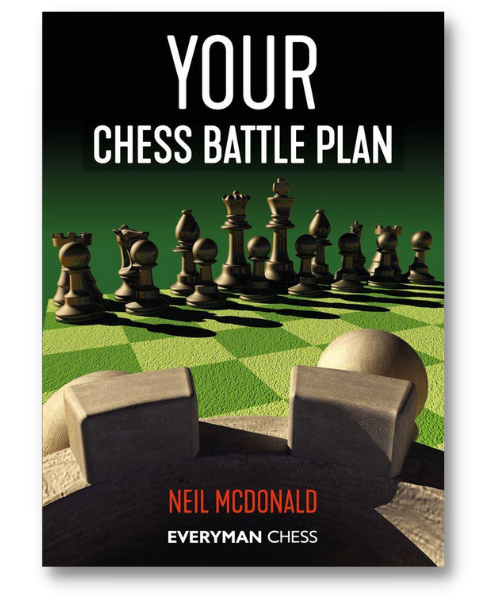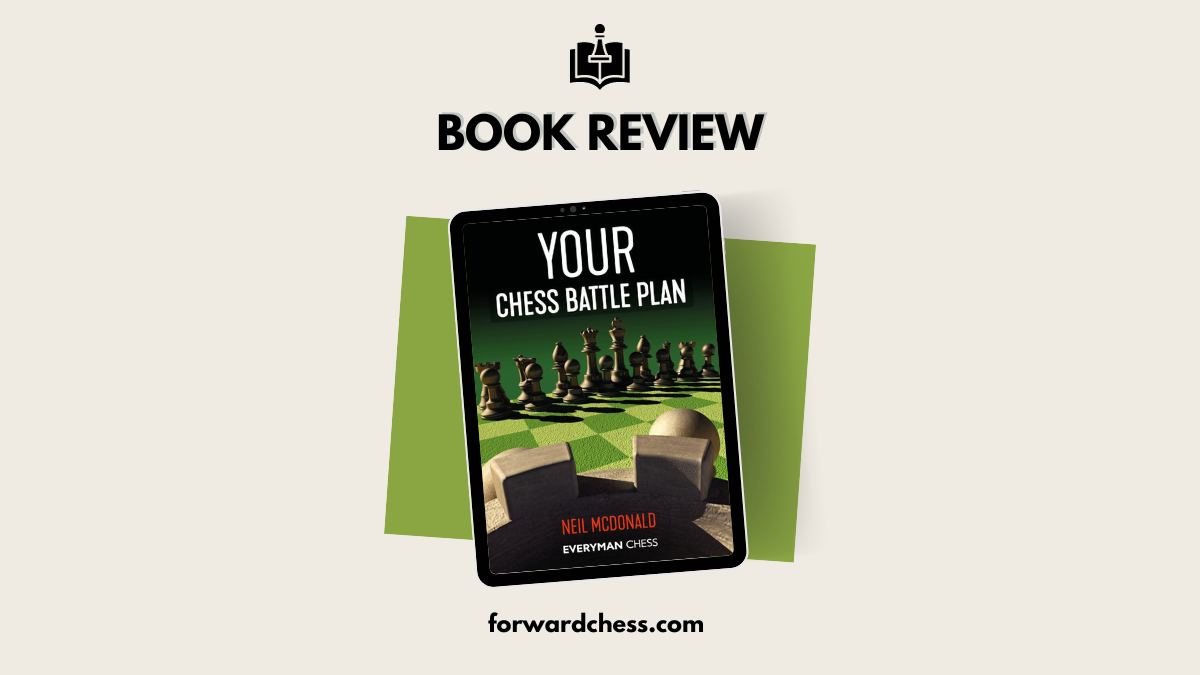Book Review of Your Chess Battle Plan by Neil McDonald
“Plans are worthless, but planning is everything.”
– Dwight D. Eisenhower.
As the title suggests, this is a book about planning in chess. Despite Eisenhower’s statement above, it’s clear that the author, GM Neil McDonald, wants us to make appropriate plans during play and not just make aimless moves and hope for the best. He summarises his approach as follows:
“Perhaps at the moment, you see chess in terms of developing moves, attacking moves, and defensive moves. The purpose of this book is to show you these things and a lot more. Imagine you have all your pieces in play in an equal position where there is nothing to attack and no threat to deal with. What should you do then? You should maneuver and probe, stop the opponent from carrying out the advances he wishes, fortify strong points, try to create or seize control of holes, and so on. Such play is a direct challenge to the opponent it isn’t neutral. It forces him to keep up, to tread a fine line between playing with too much energy or too little. If and when he slips up, you will get the advantage. Then you will have something to build upon.”

Of course, it would be impossible to cover all aspects of chess planning in a single book, and hence McDonald has sensibly focussed on some key aspects as shown in the table of contents above. The all-important issue of pawn moves is a recurring theme throughout the book. McDonald adopts a question-and-answer approach using 77 heavily annotated illustrated games, emphasizing that this is a teaching text and not just a dry theoretical tome. Each game includes several questions for the reader to solve, with the answers being given in the following text. The answers are usually very detailed, and they cover not only the planning aspects of the positions but also any important tactics that can override the long-term planning considerations.
Along the way, McDonald offers lots of sound advice, such as
- Every plan needs the use of pawns at some point.
- Find constructive waiting moves that give the opponent full rein to overreach himself or carry out an incorrect plan.
- Go into ‘full grovel mode’ to save difficult positions by devising a plan that offers maximum resistance.
- If you want to be a strong positional player, you still have to be able to calculate ahead and see tactical nuances.
- Avoid playing the ‘best’ but messy move in favour of a solid, but not so objectively advantageous alternative.
McDonald is an experienced author and FIDE trainer, and his training credentials clearly shine through in the book. The book is easy to read and contains many important concepts that readers can adopt in their games.
Two examples from the book are given below, with annotations:
Your Chess Battle Plan: Example 1
Your Chess Battle Plan: Example 2
In summary, the book is an excellent treatise on chess planning. McDonald has chosen appropriate and instructive games to illustrate his themes and recommendations. The book’s strengths are the good questions, the clear and extensive annotations, and a relaxed writing style. The result is a fine textbook on an important chess skill.
Have any thoughts or questions? Let us know in the comments!
- Book Review: A Guide To Chess Improvement - September 9, 2024
- Review: Chess Coach by Vladimir Barsky - August 26, 2024
- Book Review: Oops! I Resigned One More Time - July 31, 2024
